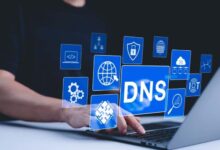
The dangers and benefits of the Internet
The internet is arguably the most transformative technological advancement of the 21st century. It has revolutionized almost every aspect of our lives, from how we communicate to how we work, learn, and entertain ourselves. In just a few decades, the internet has gone from being a niche tool used primarily by academics and researchers to an essential part of daily life for billions of people around the globe.
The digital age has ushered in unprecedented access to information and services, breaking down traditional barriers and opening up new opportunities. The convenience of online banking, the ability to work remotely, the endless stream of entertainment options, and the ease of staying connected with loved ones are just a few examples of how the internet has enhanced our lives.
However, with these benefits come significant challenges and risks. The internet’s vast, open nature makes it a breeding ground for cybercrime, misinformation, and other threats. Cybercriminals are constantly devising new ways to exploit vulnerabilities, steal personal information, and perpetrate fraud. The spread of fake news and misinformation can sow discord, mislead the public, and undermine trust in institutions. Moreover, issues like cyberbullying and internet addiction are emerging as serious societal concerns, particularly among younger generations.
In this blog post, we will delve into the myriad benefits of the internet, exploring how it has positively impacted various facets of modern life. We will also discuss the inherent dangers that come with its use and provide practical tips on how to navigate the digital landscape safely. By understanding both the advantages and the risks, you can make informed decisions and take proactive steps to protect yourself online.
Whether you’re a seasoned internet user or someone just beginning to explore the digital world, this guide aims to equip you with the knowledge you need to harness the power of the internet while safeguarding your personal information and well-being.
The Benefits of the Internet
1. Information Access
The internet is a vast repository of information. Whether you need to research a topic, learn a new skill, or stay updated with the latest news, the internet provides instant access to a wealth of resources.
2. Communication
The internet has revolutionized communication. Email, social media, video calls, and instant messaging allow people to connect with friends, family, and colleagues around the world, breaking down geographical barriers.
3. Education
Online learning platforms and resources have made education more accessible. From free courses to full degree programs, the internet provides opportunities for lifelong learning and professional development.
4. E-commerce
The internet has transformed the shopping experience. Consumers can purchase goods and services online, compare prices, read reviews, and have items delivered to their doorstep, enhancing convenience and choice.
5. Entertainment
Streaming services, online games, and social media platforms offer a plethora of entertainment options. The internet allows users to access music, movies, books, and other content anytime and anywhere.
6. Work and Collaboration
The internet has enabled remote work and global collaboration. Tools like cloud storage, project management software, and video conferencing make it possible to work from anywhere and collaborate with teams worldwide.
The Dangers of the Internet
1. Cybercrime
Cybercrime includes activities like hacking, phishing, and identity theft. Cybercriminals use various tactics to steal personal information, financial data, and intellectual property.
2. Privacy Concerns
The internet can compromise personal privacy. Social media platforms, search engines, and other online services often collect vast amounts of personal data, which can be misused or sold to third parties.
3. Cyberbullying
The anonymity of the internet can lead to cyberbullying, where individuals use online platforms to harass, intimidate, or threaten others. This can have severe emotional and psychological impacts.
4. Misinformation
The internet is rife with misinformation and fake news. It can be challenging to distinguish between credible sources and false information, leading to misunderstandings and misinformation.
5. Addiction
Internet addiction is a growing concern. Excessive use of social media, online gaming, and other internet activities can lead to addiction, affecting mental health and productivity.
6. Malware and Viruses
Malicious software and viruses can infect devices, leading to data loss, financial damage, and other harmful effects. They can spread through email attachments, downloads, and even seemingly innocent websites.
How to Stay Safe on the Internet
1. Use Strong Passwords
Create strong, unique passwords for all your online accounts. Use a combination of letters, numbers, and special characters. Consider using a password manager to keep track of your passwords.
2. Enable Two-Factor Authentication
Two-factor authentication (2FA) adds an extra layer of security to your accounts by requiring a second form of verification, such as a text message or authentication app, in addition to your password.
3. Be Cautious with Personal Information
Be mindful of the information you share online. Avoid posting sensitive details like your address, phone number, and financial information on social media and other public platforms.
4. Stay Informed About Phishing Scams
Phishing scams attempt to trick you into providing personal information by posing as legitimate organizations. Be wary of unsolicited emails or messages asking for personal details or urging you to click on suspicious links.
5. Use Antivirus Software
Install reputable antivirus software on your devices to protect against malware and viruses. Keep the software updated to ensure you have the latest security features.
6. Keep Software Updated
Regularly update your operating system, browser, and other software to protect against security vulnerabilities. Enable automatic updates when possible to ensure you have the latest patches.
7. Use Secure Networks
Avoid using public Wi-Fi for sensitive activities like online banking or shopping. If you must use public Wi-Fi, consider using a virtual private network (VPN) to encrypt your connection and protect your data.
8. Educate Yourself and Others
Stay informed about the latest internet safety practices and share this knowledge with friends and family. Understanding the risks and how to mitigate them is crucial for staying safe online.
Conclusion
The internet is an incredible tool that offers immense benefits, from instant access to information and global communication to educational opportunities and entertainment. However, it also presents significant dangers, including cybercrime, privacy concerns, and the spread of misinformation. By taking proactive steps to protect yourself online, you can enjoy the advantages of the internet while minimizing the risks. Stay informed, stay cautious, and stay safe.








